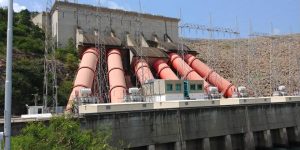The Chairman of Parliament’s Finance Committee and MP for Obuasi West, Kwaku Kwarteng, wants the establishment of a special tax court to handle issues of financial impropriety.
Speaking on Citi TV’s Parliamentary news magazine programme, The Chamber, Mr. Kwarteng said there is the need to take issues involving revenue mobilization seriously.
“I think given the hostile external environment and the increasing burden on us as a people to look within to raise revenue to finance our needs as a people, maybe it’s time to do some extraordinary things with respect to these matters. I think it will be helpful for the Judiciary, police, and other public sector entities that deal with these irregularities, both in revenue mobilisation and expenditures, to have a kind of revolution that says when it comes to matters relating to the country’s revenue and how public financial management has been treated, it is a special case.”
“I have worked with the Ministry of Finance, worked closely with GRA, and it is not as though no attempt is made to prosecute some of these irregularities. Some tax evaders head to court, apply all the technicalities, and end up frustrating the process. Sometimes police investigations drag. All these create a fertile environment for people to get compromised.”
He called for the establishment of a “special tax court that will be dedicated to tax and related issues.”
He also urged the police to address issues involving the country’s revenue with the needed urgency.
“Until the country devices emergency solutions to these irregularities, we will continue to struggle with the generation of domestic revenue, and we will keep relying on external support,” he added.
His comments come on the back of a report by IMANI Africa that revealed that some commercial banks who collect tax revenue on behalf of government failed to lodge the funds based on the time frame provided by the PFM Act, which is one of the major issues that government faced.
“Overall, this is the fiscal recklessness of the 29 MDAs in Ghana. The recklessness or the financial cost of the recklessness of the Ministries Departments and Agencies are increasing as compared to 2010 and 2014,” he added.
The policy think tank also observed that the current public financing system is not delivering efficiency.
“If you compare 2010 to 2014, the financial cost of the recklessness of MDAs to the period 2015 and 2020, you see that the recklessness has increased by about 13 times. So between 2010 and 2014, the financial cost of irregularity was about 1.4 billion, but between 2015 and 2020 it is about 13.9 billion, which shows that the Public Financial System that we have, to some extent, is not delivering the level of efficiency.”
The Ministry of Health was also ranked as the second most financially reckless institution in the country







